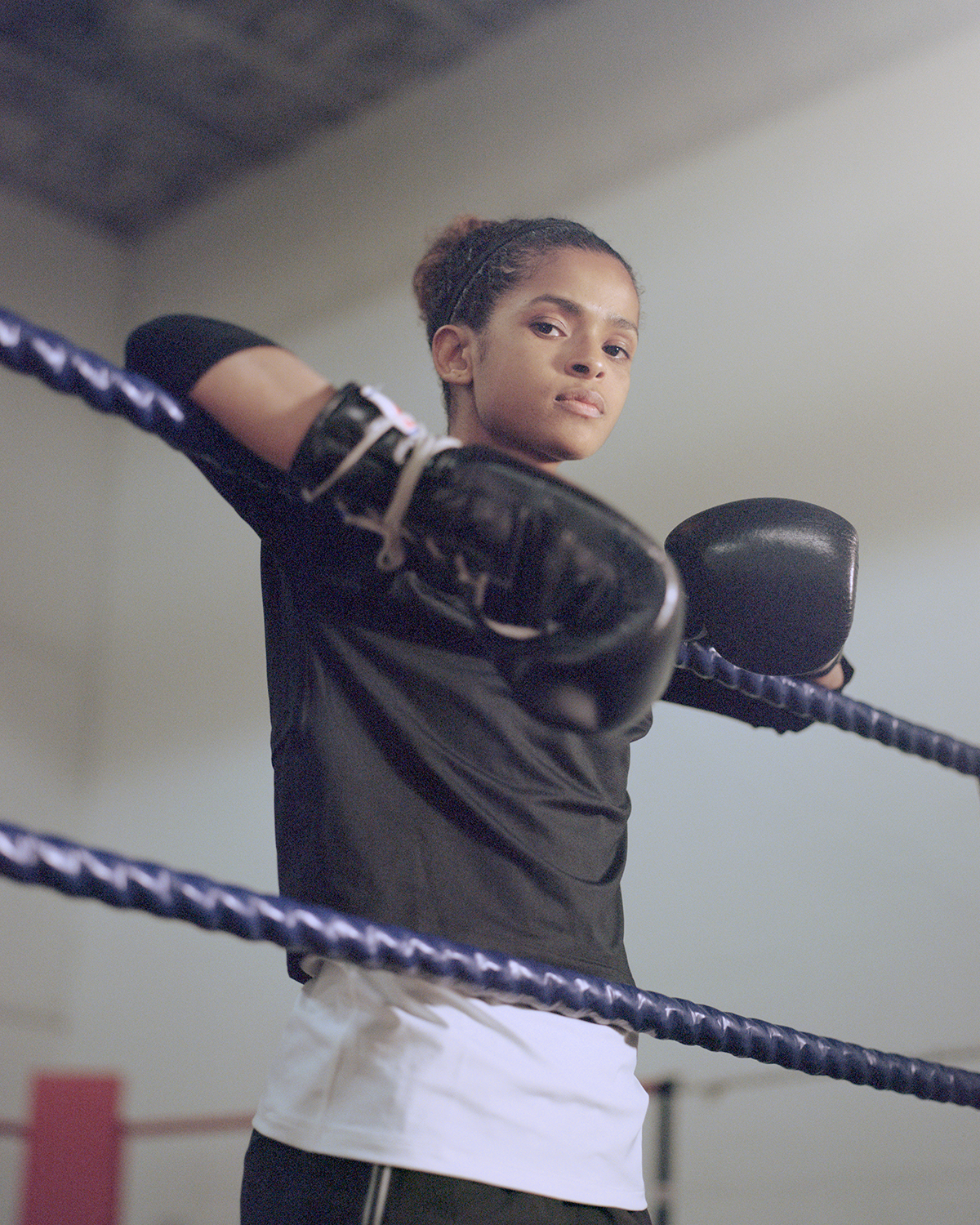It’s the second day of Ramadan, and Ramla Ali is wrapping her hands at a boxing gym in London’s East End. It’s now midafternoon, and as a practicing Muslim, Ali hasn’t had any food or drink since before dawn. “I’m still training,” the featherweight says as she gets ready for a workout. “Which is obviously really hard.”
The first Muslim woman to win an English boxing title, Ali has her sights set on the 2020 Olympic Games in Tokyo. There, should she qualify, she will become the first boxer of any gender to represent her country of birth, Somalia, which sent only two athletes to the 2016 Rio Games.
Her path here hasn’t been easy. When she was a child during the Somali civil war in the early 1990s, her family fled their Mogadishu home after her older brother was killed by a stray grenade. They escaped the country via a perilous boat journey to Kenya, and eventually ended up in London.
At school, Ali was bullied for being overweight, until she discovered boxing in her teens. Even after she started fighting competitively, she hid her passion from her family, worried her mother would think it was immodest. “I knew she would never be supportive,” Ali says. The day she won the English title in 2016, she told her family she was going for a run.
As Ali’s profile increased, her mother eventually found out and asked her to stop—which she did, if only temporarily. “I understood, because she grew up in a different era to me,” Ali says. “But there was resentment at the same time. How can you not understand that this is what I love?”

Eighteen months ago, an uncle in Mogadishu eventually helped reassure Ali’s mother that the community was happy, not ashamed. By then, Ali had made the decision to represent Somalia, rather than the U.K., at the international level. “He called me up and told me he was really proud of me,” she says. “I’d never had a senior family member say that.”
Now, Ali’s mother is her biggest fan, though she has still never been to see her fight in person. That might soon change. In May, after Ali returned from a tournament in Botswana, her mother made her a promise. “She said, ‘If you get to Tokyo, I’ll book my ticket and I’ll see you there.’”
When she’s not traveling around the world for competitions, Ali runs free weekly self-defense classes for women in South London. The sessions are particularly popular with Muslim women who want to learn to protect themselves in a women-friendly environment.
As a refugee whose adoptive country gave her so many opportunities, Ali is equally aware that African boxers who train in their home nations aren’t adequately represented at the top flight of boxing. That’s why she’s raising funds to bring the Botswana boxing team, who welcomed her on her recent trip, to the U.K. for a week of training ahead of the All Africa Games. “The thing that sets them apart from other countries is not their skill,” she says. “It’s just the fact that they don’t have the same opportunities.”
Ali hopes others will be inspired not to give up on sports. “Don’t be deterred just because someone told you it’s not what a girl should do,” she says. “Just do what makes you happy.”
- Donald Trump Is TIME's 2024 Person of the Year
- Why We Chose Trump as Person of the Year
- Is Intermittent Fasting Good or Bad for You?
- The 100 Must-Read Books of 2024
- The 20 Best Christmas TV Episodes
- Column: If Optimism Feels Ridiculous Now, Try Hope
- The Future of Climate Action Is Trade Policy
- Merle Bombardieri Is Helping People Make the Baby Decision